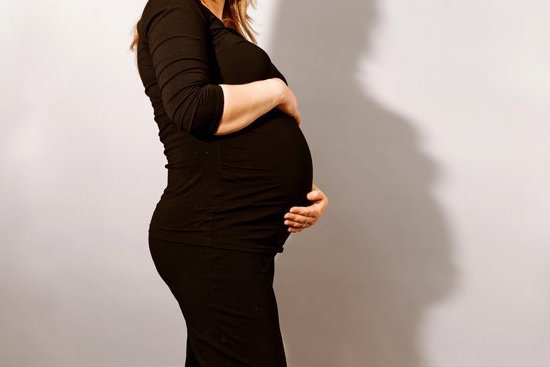Are you expecting a child and considering taking time off work? If so, understanding short term disability pregnancy is crucial.
Short term disability insurance provides financial protection for individuals who are unable to work due to a temporary disability, including pregnancy. This article will explore the ins and outs of short term disability pregnancy, including what it is, how it applies to pregnancy, the benefits of having this insurance, how to apply for it, the coverage and limitations, alternatives, and real-life stories of how it has helped expecting mothers.
Short term disability insurance is designed to provide income replacement in the event that an individual is temporarily unable to work due to a covered condition – which can include pregnancy. Many expecting mothers find themselves needing time off from work before and after childbirth, making short term disability insurance an important consideration.
In this article, we will delve into the specifics of short term disability insurance as it relates to pregnancy. We will also discuss some real-life stories of how this type of insurance has been beneficial for expecting mothers. Whether you are currently pregnant or planning for the future, understanding short term disability pregnancy is essential for being prepared financially during this important stage of life.
What Is Short Term Disability Insurance and How Does It Apply to Pregnancy?
Short term disability insurance is a type of coverage that provides financial assistance to individuals who are unable to work due to a temporary disability, such as pregnancy. This type of insurance typically covers a portion of the individual’s income for a specified period of time, allowing them to take time off work for medical reasons without suffering from a complete loss of income.
When it comes to pregnancy, short term disability insurance can be incredibly beneficial in providing expecting mothers with much-needed financial support during their maternity leave.
In essence, short term disability insurance for pregnancy works by providing expecting mothers with a source of income while they are unable to work due to childbirth and recovery. This can help alleviate some of the financial stress often associated with taking time off work for maternity leave.
While the specific terms and coverage can vary depending on the insurance policy, short term disability insurance typically covers a percentage of the individual’s pre-disability income for a specified period, such as six weeks following a vaginal delivery or eight weeks following a cesarean section.
In addition to covering a portion of the individual’s income during maternity leave, short term disability insurance for pregnancy may also provide coverage for any medical complications that may arise during pregnancy or childbirth. This can help offset the costs associated with medical treatment and care, offering expecting mothers valuable peace of mind during what can be a physically and emotionally challenging time.
It is important for expecting mothers to carefully review their policy details and understand what is covered under their short term disability insurance plan in relation to pregnancy.
| Short Term Disability Insurance Benefits | Details |
|---|---|
| Income Replacement | Covers percentage of pre-disability income during maternity leave |
| Medical Complications Coverage | May provide coverage for medical complications related to pregnancy or childbirth |
The Benefits of Having Short Term Disability Insurance During Pregnancy
Financial Security
One of the primary benefits of having short term disability insurance during pregnancy is the financial security it provides. Pregnancy can bring unexpected medical expenses and, in some cases, the need for time off work. Short term disability insurance can help cover a portion of your income while you’re unable to work due to pregnancy-related conditions such as bed rest, childbirth, or recovery.
Peace of Mind
Having short term disability insurance during pregnancy can also provide peace of mind for expectant mothers. Knowing that there is some financial support available in case of unforeseen circumstances can alleviate some of the stress and worry that often comes with pregnancy. This allows pregnant individuals to focus on their health and well-being without having to constantly be concerned about how they will manage financially if they need to take time off work.
Protected Maternity Leave
Short term disability insurance can also ensure that expecting mothers are able to take a reasonable amount of time off work for maternity leave without facing significant financial strain. This is especially important for those who may not have access to paid maternity leave through their employer.
The coverage provided by short term disability insurance can help bridge the gap between regular income and any unpaid maternity leave, allowing new parents to bond with their child during those crucial first weeks without worrying about lost income.
How to Apply for Short Term Disability Insurance for Pregnancy
Short Term Disability Insurance provides crucial financial support for expecting mothers who cannot work due to pregnancy-related medical conditions. It is important to understand how to apply for this type of insurance to ensure a smooth and stress-free process.
When applying for Short Term Disability Insurance for pregnancy, there are several steps that expecting mothers should take:
- Research Different Providers: Start by researching different insurance providers that offer Short Term Disability Insurance for pregnancy. Compare their coverage, waiting periods, and benefit durations to find the best option for your specific needs.
- Check Eligibility Requirements: Once you have chosen a provider, carefully review their eligibility requirements. Some insurers may require you to have the policy in place before becoming pregnant, while others may allow you to apply after conception.
- Fill Out the Application: Complete the application form provided by the insurer. The form will ask for personal information, medical history, and details about your pregnancy. Be sure to provide accurate and thorough information to avoid any complications with your claim later on.
It is important to note that some employers offer Short Term Disability Insurance as part of their employee benefits package. In such cases, expecting mothers may need to follow specific procedures outlined by their HR department or benefits administrator in order to apply for coverage.
Ultimately, applying for Short Term Disability Insurance for pregnancy requires careful consideration of different providers, understanding of eligibility requirements, and thorough completion of the application process. By taking these steps, expecting mothers can ensure they have the financial support they need during their pregnancy.
Understanding the Coverage and Limitations of Short Term Disability Insurance for Pregnancy
Short term disability insurance is designed to provide financial assistance to individuals who are unable to work due to a temporary disability, including pregnancy. However, it is important to understand the coverage and limitations of short term disability insurance for pregnancy in order to make an informed decision about whether this type of insurance is right for you.
Coverage
Short term disability insurance typically covers a portion of your income while you are unable to work due to pregnancy-related complications or recovery from childbirth. This can help alleviate some of the financial burden associated with being out of work during this time.
Limitations
It’s important to note that short term disability insurance for pregnancy may have limitations in terms of the length of coverage and the amount of benefits provided. Some policies may only cover a portion of your income for a limited period of time, so it’s crucial to carefully review the details of any policy you are considering.
Pre-Existing Conditions
Another limitation to consider is that some short term disability insurance policies may not cover pre-existing conditions, which could impact your ability to receive benefits if you become pregnant shortly after obtaining the policy. It’s essential to thoroughly review the policy details and speak with an insurance agent if you have any concerns about pre-existing conditions affecting your coverage.
Understanding these coverage and limitations is crucial when considering whether to obtain short term disability insurance for pregnancy. It’s important to carefully review policy details, evaluate alternatives, and make an informed decision about what will provide you with the financial security you need during this time.
Alternatives to Short Term Disability Insurance for Pregnancy
Many expecting mothers may not have access to short term disability insurance for pregnancy through their employer or may find the coverage and limitations of such policies to be inadequate. In these cases, it is important to explore alternative options that can provide financial support during maternity leave.
Here are some alternatives to consider:
1. Personal Savings: One option is to plan ahead and save money specifically for maternity leave. Creating a separate savings fund can help cover expenses during the time off work without relying on insurance benefits.
2. Paid Time Off (PTO): Some employers offer paid time off benefits that can be used for maternity leave. It’s important to review company policies and understand how much PTO can be used, as well as any restrictions or requirements.
3. Family Medical Leave Act (FMLA): FMLA provides eligible employees with up to 12 weeks of unpaid, job-protected leave for specific family and medical reasons, including pregnancy and childbirth. While this option does not provide direct financial support, it ensures job security during the maternity leave period.
4. State Disability Insurance (SDI): Some states offer short-term disability benefits for individuals who are unable to work due to pregnancy or related conditions. Eligibility and benefit amounts vary by state, so it’s important to research the specific SDI program in your state.
5. Supplemental Income Assistance: Depending on individual circumstances, there may be other forms of assistance available, such as government programs or temporary assistance funds provided by community organizations.
It’s important for expectant mothers to carefully consider their options and plan ahead for maternity leave, whether through short term disability insurance for pregnancy or alternative methods of financial support. Each individual’s situation will be different, so it’s essential to explore all available resources and make informed decisions about preparing for this significant life event.
Real-Life Stories
Short term disability pregnancy insurance can provide much-needed financial support for expecting mothers during their maternity leave. Many women have benefited from the coverage provided by short term disability insurance, allowing them to take time off work without worrying about lost income.
One real-life story comes from Sarah, a marketing professional who was thrilled to find out she was pregnant. However, as the primary breadwinner in her household, she was concerned about taking time off work after the birth of her child. Thanks to her short term disability pregnancy insurance, she was able to receive a portion of her regular income while on maternity leave, giving her peace of mind and allowing her to focus on bonding with her new baby.
Another example is Jessica, a teacher who had complications during her pregnancy that required bed rest and ultimately an early delivery. Without short term disability insurance, she would have faced significant financial hardship due to the unforeseen circumstances. The benefits provided by her policy helped cover a portion of her lost income and allowed her to prioritize her health and the health of her baby without added stress.
| Benefits | Experiences |
|---|---|
| Financial Stability | Received a portion of regular income while on maternity leave. |
| Peace of Mind | Allowed them to focus on bonding with their new baby without worrying about lost income. |
| Health Prioritization | Enabled them to prioritize their health and the health of their baby without added stress. |
Having this type of insurance coverage can truly alleviate some of the financial burden associated with pregnancy and maternity leave, allowing expecting mothers to fully embrace this special time in their lives.
Conclusion
In conclusion, it is crucial for expecting mothers to be prepared with short term disability insurance for pregnancy. This type of insurance provides crucial financial support during the period of maternity leave, allowing mothers to focus on their health and the well-being of their newborn without having to worry about lost income.
The peace of mind that comes with knowing that there is a safety net in place can make a world of difference during what can be a challenging and uncertain time.
While some may hope for an uncomplicated pregnancy and delivery, the reality is that unexpected complications can arise, leading to the need for additional time off work. Short term disability insurance provides a buffer in such situations, ensuring that mothers are able to take all the time they need to recover and bond with their new baby without sacrificing their financial stability.
Furthermore, this type of insurance also benefits employers by reducing the burden on company-paid maternity leave programs or other employee benefits. It allows businesses to support their pregnant employees while maintaining financial stability. Overall, short term disability insurance for pregnancy is an essential tool for both expectant mothers and their employers in managing the challenges that come with balancing work and family life during this significant life event.
Frequently Asked Questions
Can Pregnancy Cause Short Term Disability?
Pregnancy can indeed cause short-term disability, especially if the expecting mother experiences certain medical conditions or complications during her pregnancy. Conditions such as gestational diabetes, severe morning sickness, or pregnancy-related hypertension can lead to the need for short-term disability leave.
What Benefits Can I Get While Pregnant?
Pregnant individuals may be eligible for a number of benefits, depending on their specific situation and employment status. These benefits could include paid or unpaid maternity leave, access to certain workplace accommodations under the Pregnancy Discrimination Act, and potential eligibility for disability benefits if complications arise that prevent them from working.
Who Is Eligible for Pregnancy Disability Leave?
In the United States, eligible employees covered under the Pregnancy Disability Leave (PDL) include those who work for companies with five or more employees. Additionally, pregnant individuals who meet specific criteria related to their tenure and number of hours worked may qualify for up to 12 weeks of job-protected leave under the Family and Medical Leave Act (FMLA).

Welcome to my fertility blog. This is a space where I will be sharing my experiences as I navigate through the world of fertility treatments, as well as provide information and resources about fertility and pregnancy.





